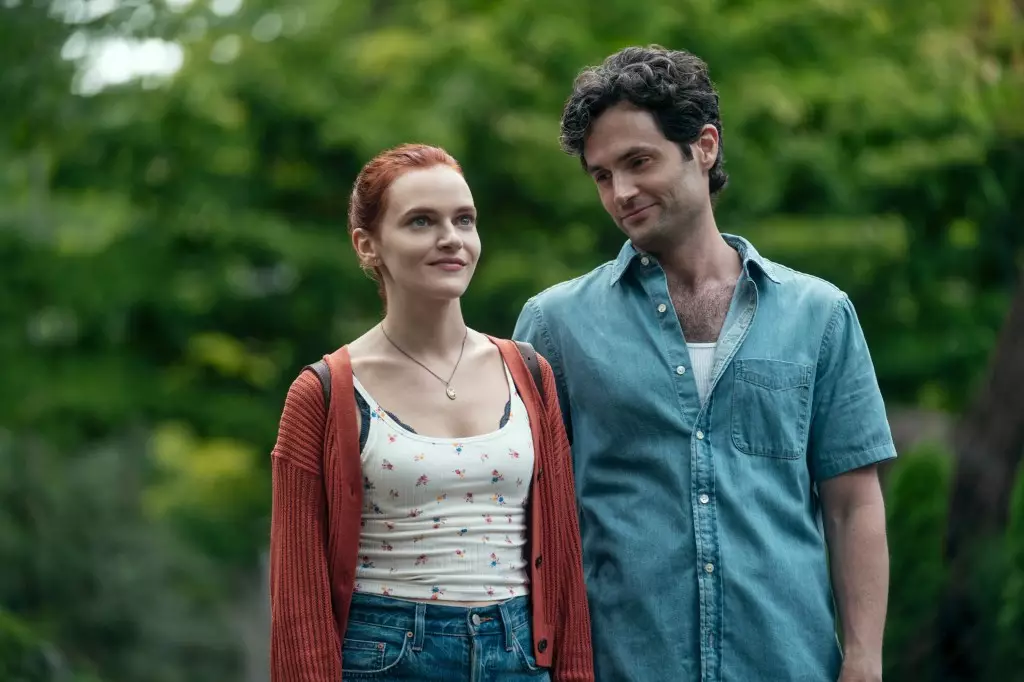The gripping psychological thriller “You” has captivated audiences for years with its chilling portrayal of Joe Goldberg, a character steeped in narcissism and violence. As the series drew to a close with its fifth season, showrunners Michael Foley and Justin Lo were faced with the monumental task of delivering not just an ending, but one rife with profound implications about morality, justice, and accountability. Far from the traditional redemption arc often seen in media, the finale accepted a harsher truth—one that dismisses the ease of death as justice. Instead, Joe’s incarceration offers a bitter, yet poignant reflection on the consequences of a life spent in manipulation and cruelty.
A Ghost of His Own Making
In a revealing interview, the co-executive producers shared that the series could have ventured down a vastly different path—one where Joe becomes a ghost, literally reflecting on his inability to escape the repercussions of his actions. While the notion of a supernatural twist, where Joe realizes he is a ghost after being shot, lingers in the shadows of contemplative storylines, it ultimately reflects a pattern of typical narratives where the antagonist rarely faces genuine accountability for their misdeeds.
The producers ultimately made a conscious decision to challenge this trope. Choosing to let Joe face the stark reality of his immoral existence by placing him behind bars was an astute and bold choice. Here, the series delivers a captivating observation: rather than seeking a fantastical escape, Joe is trapped within a reality constructed by his own actions—a prison of his making, which mirrors the entrapments he imposed on others throughout the series.
Confronting the Unvarnished Truth
In its finale, “You” provocatively underscores the theme of self-delusion, as Joe’s voiceover hints at his persistent view of himself as a victim of societal injustices, revealing an unsettling truth about his character. Despite his heinous crimes, Joe continues to exist in a warped reality, demonstrating that psychological torment may often overshadow the physical vengeance expected from traditional narratives. Foley pointedly notes that the narrative structure remained fixed on a singular belief: Joe must not evade the consequences of his actions, and that his demise would be “too easy,” a refrain that resonates within the fabric of contemporary storytelling.
This candid approach forces viewers to grapple with a potent question: can real justice ever be manifested against those who refuse to acknowledge their wrongdoing? It’s an exploration that must persist beyond the confines of fiction and resonates deeply with the audience, provoking discussions around accountability, misogyny, and the often-ignored pain endured by victims.
Justice or Revenge: The Murky Waters of Moral Dilemmas
Actor Penn Badgley, who portrays Joe, aptly elucidates the complexity of justice and retribution in his character’s arc. If Joe were to be killed, particularly at the hands of a woman, the narrative of victim and perpetrator would become convoluted, burdening the would-be avenger with the weight of murder—a cycle that perpetuates the very violence Joe embodies. Badgley’s perspective delves into philosophical debates that question the effectiveness of revenge versus justice, challenging viewers to reassess their perspectives on morality.
By inflicting psychological punishment—a life devoid of connection and an inevitable reckoning with his own reflections, the series deftly avoids glorifying violence or providing easy resolutions. Instead, it presents a masterful illustration of how true justice can come in the forms of realization and understanding—qualities that are far more arduous to endure than a swift execution.
Finding Humanity in the Unspeakable
Ultimately, the resonance of “You” lies not only in its thrilling narrative but in its audacity to confront the unspeakable truths about human nature. Joe’s dodging of justice for so long mirrors the real-world implications of unchecked privilege, echoing relevant sociopolitical commentary on systemic flaws and societal failures to address abuse and manipulation. The series, through its visceral lens, forces its audience to reflect on their own definitions of accountability and justice.
In the grand tapestry of storytelling, the finale of “You” crafts a potent reminder that real punishment may lie less in physical pain and more in the contemplation of one’s own failures—a burden far heavier than any that could be inflicted externally. And perhaps that’s where the power of this conclusion lies, challenging viewers to demand better of narratives and, by extension, society at large.


Leave a Reply